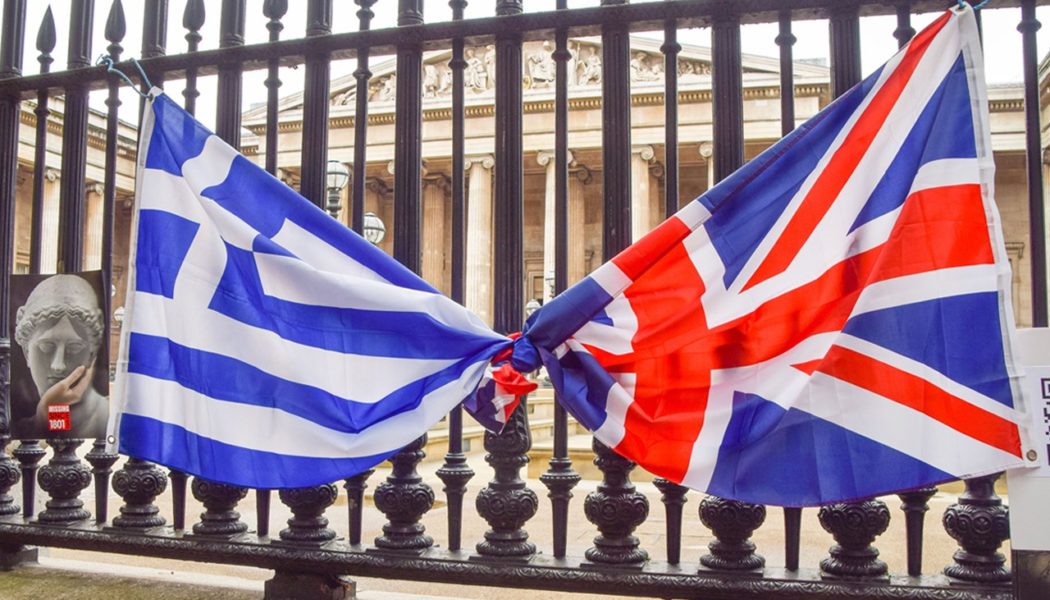The British Museum has confirmed that it is in discussion with Greece on returning several of the Parthenon Marbles. A report first published by the Telegraph detailed how senior Greek ministers had met with the institution’s chairman George Osborne for over a year and a deal to return the artwork was drawn up as part of a “cultural exchange.” Another Greek official, however, spoke with the Guardian this week stating that “no such deal” has taken place.
The Parthenon Marbles, also known as the Parthenon Sculptures or Elgin Marbles, are a series of reliefs and architectural metopes that were once placed at the temple of Athena (the Parthenon) on the Acropolis in Athens. Built between 447BC and 432BC, the marble works recount ceremonial processions to the Greek goddess Athena, war scenes such as the battle between the Centaurs and Lapiths at the marriage-feast of Peirithoos, along with depictions of various gods and heroes from Greek mythology.
In the early 19th Century, Athens had been under Ottoman rule for over 350 years and the Parthenon, which throughout its long history of switching from a temple, to a church, to a mosque, had gone into a state of ruin. Lord Elgin, the British Ambassador to the Ottoman Empire, is said to have been granted a “permit (firman)” to remove half of the remaining sculptures and bring them back to the UK, according to a release by the British Museum. The institution also notes on its website that Elgin’s actions “were thoroughly investigated by a Parliamentary Select Committee in 1816 and found to be entirely legal, prior to the sculptures entering the collection of the British Museum by Act of Parliament.”

Vuk Valcic/SOPA Images/LightRocket via Getty Images
Greek officials have long contested these claims and a recent report by the Guardian also revealed documents from 1803 spotlighting how Elgin wanted to display the marbles at his Scottish estate, but did not want to pay the taxes for “sculptured marbles and curiosities”, which would have amounted to tens of thousands of pounds today. The documents go on to state that Elgin was assisted in bringing the marbles by Viscount Castlereagh, a British foreign secretary, who had persuaded the British government to acquire the marbles — which was even highly contentious at that time.
“The removal of the Parthenon sculptures could be compared to removing the Eiffel Tower from Paris or Stonehenge from Salisbury,” said English actor Stephen Fry. “I think this comparison speaks to the cultural importance of the Parthenon sculptures, which are an indelibly evocative symbol of Greek heritage and identity.”
While the Vatican has sent back several of its Parthenon marbles as an act of solidarity, talks between the British Museum and Greece have mostly surmounted to a loan program — to which Greece fiercely disapproves. “Clever politicians listen to their people,” said head of the Acropolis Museum Nikos Stampolidis, in a past interview. “If there were a solution, Britain could be the protagonists of an ethical empire because this transcends our countries. If the marbles were reunited here in Athens, within view of the greatest symbol of democracy, it would be a great act for humanity,” Stampolidis added.
[flexi-common-toolbar] [flexi-form class=”flexi_form_style” title=”Submit to Flexi” name=”my_form” ajax=”true”][flexi-form-tag type=”post_title” class=”fl-input” title=”Title” value=”” required=”true”][flexi-form-tag type=”category” title=”Select category”][flexi-form-tag type=”tag” title=”Insert tag”][flexi-form-tag type=”article” class=”fl-textarea” title=”Description” ][flexi-form-tag type=”file” title=”Select file” required=”true”][flexi-form-tag type=”submit” name=”submit” value=”Submit Now”] [/flexi-form]









